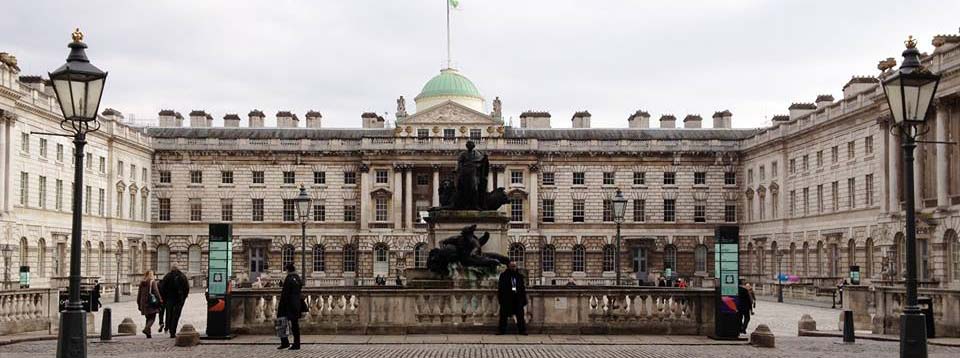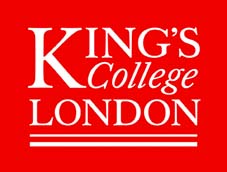

A city full of unique opportunities
Why study in the UK/London?
I chose to study in the UK because I have always dreamed of living in London, and I find British history and culture very interesting. Getting to learn more English, as well as not being too far away from home, were also huge pluses for me. After reading many great reviews of King’s College London I also thought it would be a great academic opportunity, something which turned out to be true.
King’s College London
I strongly recommend studying at King’s College London. I studied at the Strand campus, and the beautiful outdoor areas, as well as the central location (when you walk outside you can see the London Eye and Big Ben right down the river) made me feel like I was living the London dream! I studied a European Studies MA, and the selection of modules you can choose was very diverse and unique. One of the best parts of my studies were the professors, as I felt that they were all genuinely interested in helping us learn and contribute in class. In the smaller classes some of the professors knew the students by name, something which made it feel more personal and welcoming.
Applying for accommodation
The huge number of students in London is one of its best aspects, but it also means that there are many students seeking accommodation. I would recommend starting to look for housing very early, especially if you wish to live at an accommodation run by your university. I chose to live at a privately owned student accommodation, and I found it to be a great option, even if it was a bit more expensive. Housing prices seem to be generally high in London, so that is something to take into consideration. My accommodation was located about 30 minutes outside of the city centre, which made it a bit cheaper than other accommodations.
Endless opportunities
London has so much to offer, not only in terms of things to do but also who you get to meet. My friends from school, professors and flatmates were all from completely different parts of the world, and I got to learn so much about foreign cultures. One of the best parts about London is that many experiences are free, including galleries, museums and parks. My favourite areas include Covent Garden and Soho, with huge selections of food and shopping, as well as a vibrant night life.
Help from Across the Pond
My advisor from Across the Pond was a huge help for me throughout my application process. Thanks to their assistance, I felt secure through all the required steps, and I very much enjoyed the fact that Across the Pond communicates directly with the target university. My advisor made starting the process feel very easy, and I got great advise not only on what to do, but also how and when.
- Odin
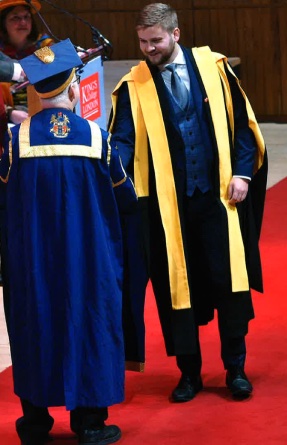
Why I decided to study in the UK
I did my bachelor’s in Political Economy at NTNU Trondheim, Norway. No Norwegian university offered this as a master’s programme – I would have to choose between PolSci or Econ/Finance. Since I wanted both, the only option was to move abroad. I started researching which countries and universities offer this study programme. The UK quickly emerged as leaders in this space. While there were other attractive destinations, I decided on the UK due to several reasons:
- Great academic offering and quality of education.
- 1 year degree as opposed to 2-year degree other places.
- Don’t have to learn a new language.
- Short distance to home (especially opposed to other English-speaking countries in the US and Australia).
- Vibrant cities with international communities, networking, and career opportunities.
Why King’s College London?
I researched the different universities offering my course and got a good grasp from Youtube and articles on where I should aim for. I applied to 5 universities just to be safe. It takes some time, but I recommend you do too. I was too late for one of them but got offers from the other four. King’s was my first choice mainly because I wanted to live in London. High-ranking universities in the middle of nowhere like Warwick can be good for the educational quality, sure, but I also weighted the city experiences and network you build out. Do your research and some soul searching on what’s important to you.
Living situation in a student accommodation – not great
London is expensive and my budget was limited. I lived in a student accommodation in Wembley, which is a bit out of London centre (40 min commute to campus). The distance wasn’t a problem except for night outs – with no night tube I had to either spend 2 hours on buses, get an expensive £45 Uber, or crash on a couch, not ideal. I lived in an ensuite sharing kitchen with 3 others. Throughout the year there, there was a lot of changes in flatmates. Common for most of them was terrible cleaning. It is unfortunate but that is the risk of not living by yourself. If you can afford to live solo, do so. I struggle to find any positives regarding student accommodation aside from the price, and them usually being a bit modern.
Opening week of university and first impressions
I had some visa issues so I missed most of the “freshers”/opening week activities, but I did this during my bachelor’s in Norway and the friends I made then remains my friends today. Highly recommend everyone to attend. You don’t need to drink, but it is common, and is usually a good time. Friendship groups usually form during this time, and it can be challenging to penetrate these later on if you decide to sit these activities out. Get out there and make connections! Avoid too controversial topics and don’t get too drunk. Everyone is there for the same reason, try to connect with as many people as you can and narrow down your friend group as the semester progresses.
Study tips
If you’re doing a bachelor’s degree, you’ll probably struggle the first year academically. Don’t lose hope and drop out, this is normal. Re-sit exams if you can and learn study techniques over time. If you’re doing a master’s degree, however, you don’t really have that option, so take your exams seriously and surround yourself with likeminded people. What worked for me is setting appointments with friends of meeting up at the library, having read X pages and written Y words by Z o’ clock. Usually what separates a decent grade from a good grade is effort.
My reflections and current status
I graduated nearly a year ago and have stayed in London working here since. There was no doubt in my mind I wanted to continue living in London, at least for a while, and therefore I started applying for jobs to have that sorted for when I graduated. I now work in a large advisory firm and continue to enjoy all the benefits London has to offer. I remain in good contact with the alumni network still living here, often meeting up for a pint or two. All the football, concerts, standup, diverse restaurants and people, museums, scenery, pubs, and nightlife, makes for a very good time when you’re young, which is why I highly recommend students to make the move.
The support I got from Across the Pond
I am unsure how I came across this organization, but I am very glad I did. I encountered several problems in my uni and visa applications that Across the Pond helped me solve, and I want to give a special shoutout to my advisor for that. Across the Pond reviewed all my documents in the applications and provided support along the processes. I had several hickups in my university and visa applications, the latter which I even got interviewed by the biggest Norwegian newspaper (VG) about. Having someone with experience to guide you along the way was very helpful for me, and I remain grateful to this day.
- Magnus
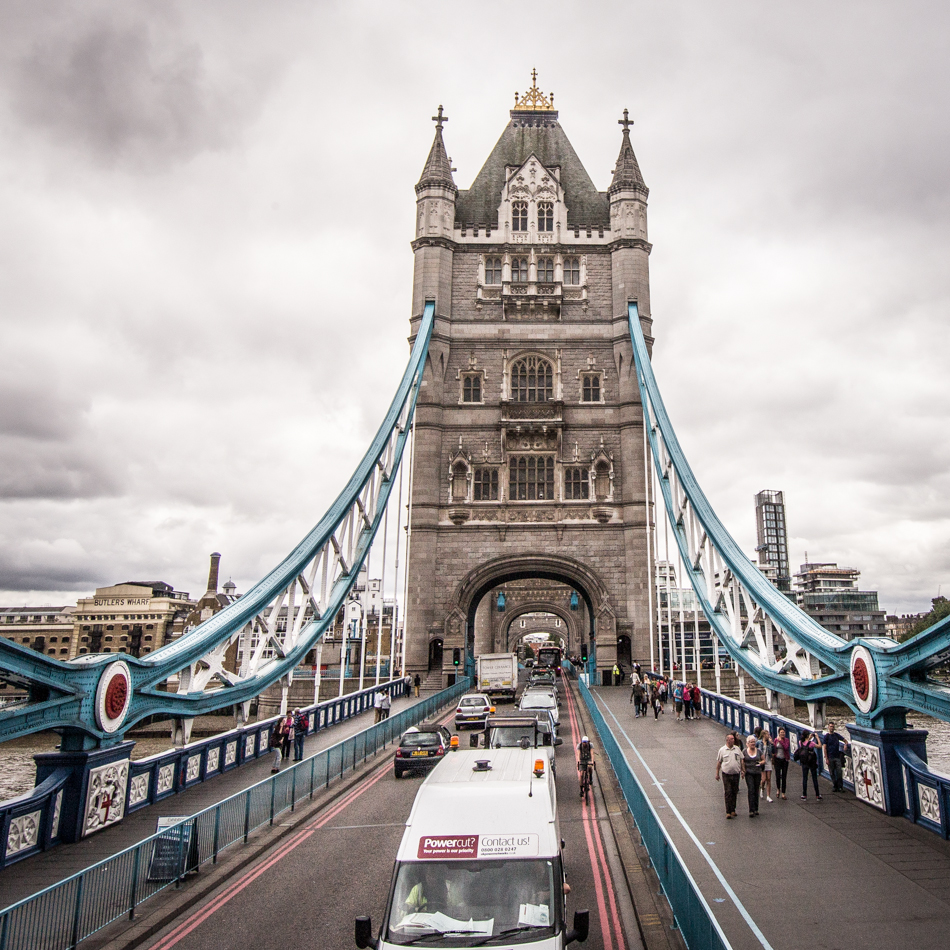
There is no place like London!

When I decided to apply to grad school, I basically had no idea what I was doing or how to start the process. I did, however, know that I wanted to go somewhere in the UK. I have always been addicted to travel and was (and still am) a self-proclaimed anglophile, so it seemed a natural choice to study in England.
I cannot express enough how lucky I was to find Across the Pond. They walked me through the process of admission and were there every step of the way with advice and answers to my (often incessant) questions. My assigned advisor was so helpful and supportive. He was an invaluable resource in completing my applications and visa requirements and was constantly encouraging and patient with me through my freak-outs. I so appreciate the personal one-on-one attention that Across the Pond provided. It still felt that I was responsible for my own applications, but that I had someone in my corner to back me up. With his help, I was accepted into all the universities that I applied to through Across the Pond. Thankfully, they didn’t just leave me there but helped me with my decision of where to go and even provided advice and resources in obtaining my student visa.
I am now in the final term of my MA in History of Warfare at King’s College London. I am incredibly happy with my choice to study here; the experience has been priceless. I chose this program because it was so unique and specific to my interests. It also helped that the War Studies department at King’s is world-renowned and offers talks and seminars from the foremost scholars, diplomats, and innovators around the world. I have loved the classes that I have taken this year, especially a module dedicated to the study of Propaganda, which was fascinating and incited the most interesting discussions and debates. My only complaint is that the year has flown by. I currently have one essay left, and then just my dissertation (yikes!). It has been academically stimulating and challenging, and, more importantly, I have met amazing, interesting people that have become good friends.
Also, the opportunity to live in London tipped the scale towards King’s. It may be expensive, but there is no place like London. The city is steeped in history and culture, it is a perfect jumping-off point for travel around Europe, and there is always something to do. Whether you’re hunting for the best bowl of ramen (Shoryu, Regent st.), visiting a museum (my personal favorite is the Imperial War Museum), or just hanging out at your local pub, there are endless possibilities for whatever your interests. I love the public transportation here (especially coming from Los Angeles), and even the tube at rush hour cannot dampen my enthusiasm (mostly).
Definitely get a student Oyster card, as you get discounts on rates. I get a monthly travel card, which isn’t cheap but allows me unlimited trips in most of London. If you get tired of the city (or just need a break) you can take a drive in the country, go camping by the sea (I just got back from Woolacombe, which I highly recommend), jump on the Eurostar to Paris, or book a cheap flight pretty much anywhere. I’m planning my next trip to Dublin, and I can’t wait!
The best advice I could give anyone coming here is don’t be afraid to ask for help. The old adage “you get out what you put in” is a dominant theme of the British system. The resources and opportunities are there, but you have to put in the effort to find and take advantage of them. Sometimes it just starts with an email, a phone call, or a question, but you have to take the initiative. Other than that, don’t take anything too seriously. You may have to accept that you won’t have peanut butter and truly sunny days are rare, but blissful, occurrences. Learn the slang, make mistakes (be careful with using the word ‘pants’), and mind the gap. There will be visa issues, travel crises, or all-nighters for papers, and yes, you will survive them. Ask for help, build your support network, and always, always have fun.
- Hannah
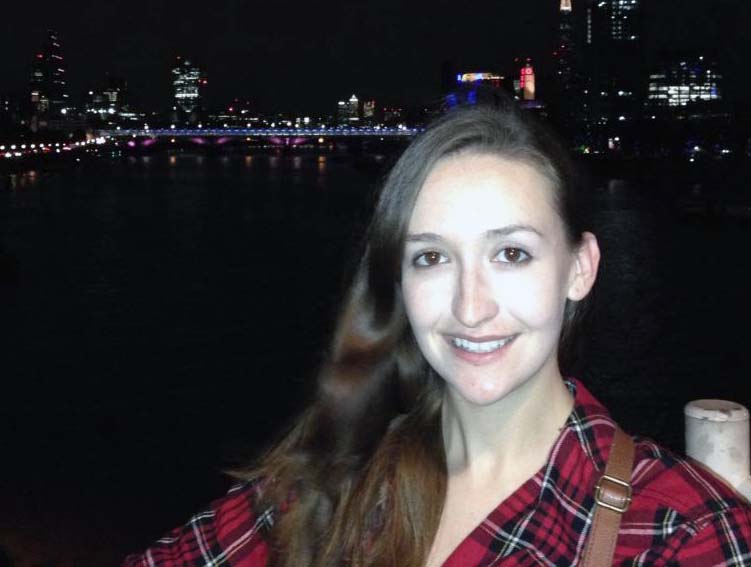
London is amazing!

Having never been to the UK (or even out of the country) before, the first couple of weeks were pretty tough. Fortunately, my uni had a Freshers' Week fair the first week or two, which had all sorts of events to help you get settled and meet new people. There were free student tours around the city, to help you get acquainted with your surroundings (and figure out where basics are located – grocery stores, pharmacies, etc.). I was given university accommodation, which turned out to be extremely helpful, as I was able to easily meet other students and save money on housing. One of the first things you want to do when you arrive is to set up a UK bank account. I went with NatWest, but Barclay’s has a good reputation as well, and they have locations all over the UK, making it easy to withdraw money anytime. I also got a basic UK phone, as my US phone was still locked. I did pay-as-you-go for the first term, then switched to a monthly plan, as it was cheaper in the long run. I went to Carphone Warehouse, and they helped me set up my UK phone and get me started. Once you have a UK SIM card, it’s easy to switch to different cell phone providers, depending on who has the best plan for you. Get acquainted with your local Tesco or Sainsbury’s. These grocery chains offer inexpensive food/toiletry items and are on nearly every street corner in London. My dormitory was self-catered, so on my first night, I ventured out with a fellow student to the nearest Tescos and bought basic cookware and food items.
WHAT IS THE CITY LIKE?
London is amazing! I come from a small town on the southeast coast of the US, so London was overwhelming at first. There are a lot more people, who seem to be out all the time (perhaps why they call London the ‘city that never sleeps). I’ve noticed that people tend to dress a bit nicer, even just to go grocery shopping. Public transport is extremely safe in London, albeit expensive. I recommend getting an Oyster card when you first arrive, along with a 16-25 Student Railcard. You can sync the cards together at many tube stations and save up to 30% on public transport (buses, trains, and tubes). Oyster cards are pay-as-you-go, which you put money on (top-up) as you need to, and are much cheaper than buying tickets each time you travel. There’s always something to do in London. I set up my UK bank account with NatWest, which gave me a free Tastecard, which offers discounts at restaurants all over the city, once activated online. You can also purchase a Tastecard online though. Many places around London (including shops and restaurants) offer student discounts, so be sure to have your student ID whenever you go out. You can often get half-priced tickets (or cheaper) at theatres/cinemas with your student card.
WHY DID YOU CHOOSE YOUR UNIVERSITY?
I chose King’s College London primarily for the MSc program, but also because it’s highly ranked (top in the UK and the world). The location (central London) was also a big factor in my choosing. A leading university in one of the most historic and popular cities in the world? I’ll take it!
WHAT DO YOU DO IN YOUR SPARE TIME?
When I’m not reading for lectures or attending lectures, I work out at the local gym on campus. I also go out with friends each week. Sometimes we try a different restaurant, other times we catch an afternoon film at the cinema for a discounted price with our student IDs. Just the other day, I had a three-hour break between lectures. Being so centrally located in London, a few of us were able to walk to the National Gallery in Trafalgar Square from campus. Most of the museums in London are free entry, with maybe £1 for a map, so it’s convenient and inexpensive to get a bit of culture in from time to time. Many pubs have weekly trivia nights for £2 a person, which a few of my flatmates attend every week and I go along when I have time. You can also join societies and organizations through the university. I joined the Christian Union on campus and I meet with them every week. We often go out to eat after our meetings at varying restaurants each week. I also joined the UNICEF society and volunteer once a week at a local primary school. Through the Christian Union, I went on a ‘weekend-away’ trip to Ashford, Kent, in the southeastern part of England. For only £35, it included train ride there and back, food, and housing from Friday night to Sunday afternoon. Sometimes joining a society can be a great way to inexpensively see more of the UK.
ANY ADVICE TO NEW STUDENTS?
Although the jet lag will leave you exhausted, and you might be feeling homesick, get out that first week and socialize! Some of my closest friends that I’ve made here, I met the first two weeks. Being around other people will help with the homesickness as well. Although people may not show it, plenty of them will also be missing home. Feel free to talk to people about it, as you’ll be surprised how many of them feel the same way. Keep track of your money! Try to pay with cash to avoid any hidden card-user fees. Have a weekly budget so you don’t overspend. King’s College London has advisors specifically for monetary issues, so feel free to meet with them if you have any concerns. Be aware of your surroundings. London is a relatively safe city, but there’s always a risk wherever you go for crime. Be mindful of walking around late at night alone. Stick to main streets that are well-lit. NEVER take an unmarked taxi. – these are extremely dangerous and you run the risk of being assaulted. Always book your taxi in advance through a licensed company. Remember that you’re here for your studies, and not just for a good time. That being said, take advantage of the opportunities you have while here. Make sure to see the famous sites, try the hip restaurants, go see a play. Check out internships in London – there are loads of them, and they look great on a resume.
MY EXPERIENCE WITH ACROSS THE POND:
I had been attempting to apply to quite a few British universities when I stumbled onto Across the Pond's website. I got an email within a day of signing up for more information. My advisor was wonderful! She was always quick to answer any questions I had regarding the application process. Applying overseas can be stressful when you’re going at it alone. Having a personal advisor helped me make sure my applications were correct and well documented. The visa application process can also seem like one of the biggest obstacles to studying overseas. Across The Pond held multiple online video seminars, which helped me better understand how to accurately apply for a student visa. I highly recommend Across the Pond to anyone interested in studying in the UK.
- Amy

Digital meeting with a Student Advisor
Book an online session with an advisor with Across the Pond to learn more about studying in the UK!
- Make sure you book the meeting at least 2 days ahead of time
- If you want to talk over Skype, make sure your Skype is working as it should and that you have connected with your advisor before the meeting starts to avoid losing valuable meeting time
- If you do not use Skype and prefer to talk over for instance Teams, just type that into the "Skype-ID" field and we´ll arrange to send you a meeting link via Teams (you do not need a Microsoft Teams user)
